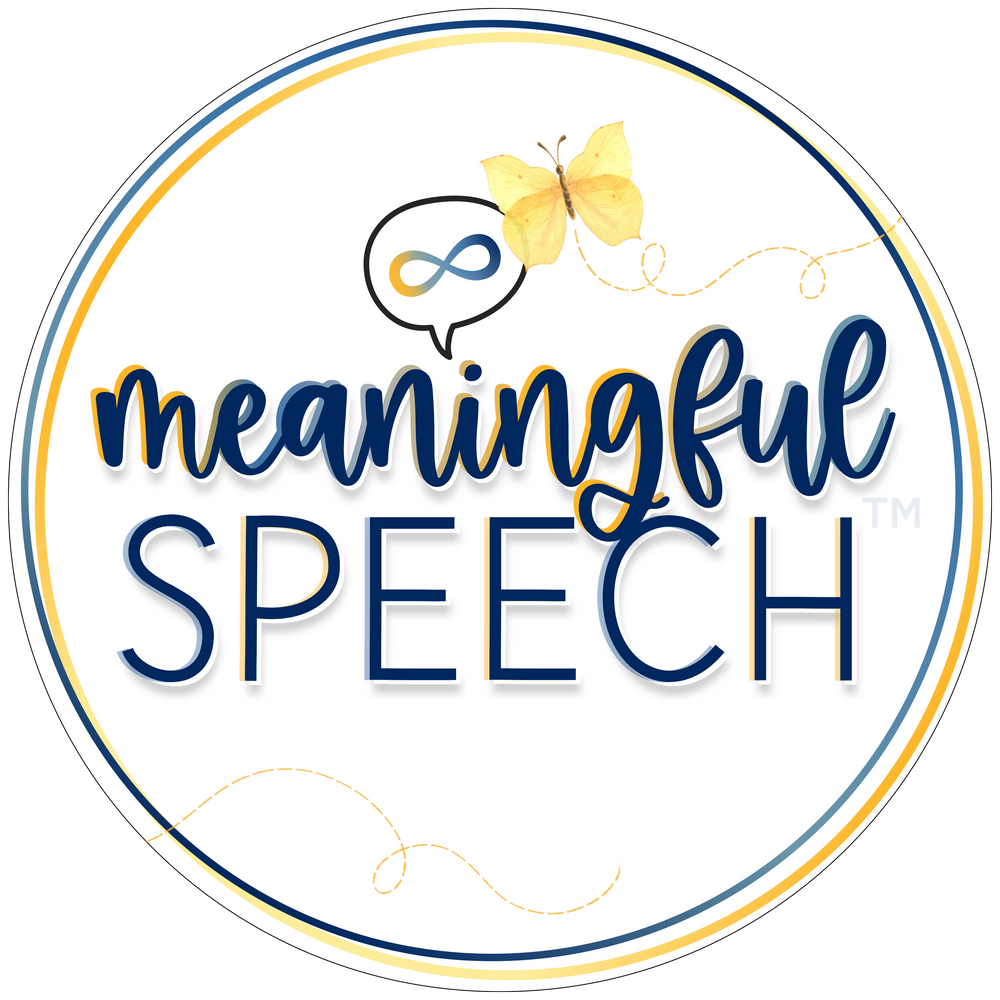Supporting Gestalt Language Processors in the School Setting
Aug 27, 2025
Ideally, every gestalt language processor (GLP) who needs support would receive individual sessions. But in schools, with large caseloads and busy classrooms, that’s not always possible. The good news? We can still make a big impact by focusing on the environment, our interactions, and our relationships with students.
Tips for Speech-Language Pathologists
We know many school-based SLPs have large caseloads, which often means seeing GLPs in groups. That’s okay! GLPs are best supported in natural ways that emphasize environment, relationships, and communication over activities. Here are a few group ideas:
Sensory & Movement Activities
Give children the chance to explore different sensory opportunities. Focus your language on commenting, narrating, and noticing their experiences (likes, dislikes, excitement).
-
Examples: obstacle courses, sensory bins, trampolines
Group Walks
Incorporate movement while making observations about sights, sounds, and changes in the environment.
Dance Parties
Music and movement create motivating, joyful opportunities for language. Encourage kids to pick songs, notice transitions, and naturally model potential gestalts/sensory language like “it's too loud” or “let’s take a break.”
Book Clubs
Perfect for children who love books, characters, or drawing. Some ideas (not exhaustive) include:
-
Clinician reading aloud
-
Children creating their own books
-
Drawing or cutting out pictures that pair with gestalts
Interest-Based Groups
Group children around shared interests for natural language opportunities and shared joy.
-
Examples: Lego club, animal group, train team
Tips for Teachers and Support Staff in the Classroom
- Acknowledge Echolalia. Don’t try to extinguish gestalts. Echolalia communicates! Nod, smile, repeat, or say “ok” even if you don’t fully understand the gestalt yet.
- Use Declarative Language. Limit questions and instead use comments, narration and allow for silence. Most GLPs aren’t ready to answer questions reliably until they’re self-generating language (Stages 3–4+).
- Look for Meaning. Gestalts often aren’t literal. They’re tied to emotional or dramatic experiences. Collaborate with caregivers, the SLP, and the student’s team to uncover meaning.
- Collaborate with the SLP. Partner with the child’s speech-language pathologist to understand how to individualize supports.
- Keep Learning. Consider a team book study with Natural Language Acquisition by Marge Blanc (northernspeech.com) or explore the Meaningful Speech course for professionals (meaningfulspeech.com). Group discounts are available for 3+ participants.
Want to learn more in-depth information about how to support gestalt language processors?
- There are many free podcasts, webinars and articles to get you started. A comprehensive list of resources can also be found on our website. We just released a new FREE masterclass on echolalia and child-led therapy that is perfect for anyone starting their learning journey or on the fence about purchasing our courses!
- Consider taking the Meaningful Speech course to learn more about how your child or client processes language, how you can help support them from echolalia to self-generated (original flexible) language, child-led therapy, and neurodiversity-affirming practices. Looking for something shorter? We have a 1-hour introductory course perfect for extended family, daycare or school staff.
- Consider taking our AAC + Gestalt Language Processing course. It will teach you how to identify, evaluate and support gestalt language processors who use AAC or who you think might benefit from AAC.
- Look for a speech-language pathologist (SLP) who "gets it" and can help you in supporting your child's language development. Check out our registry for SLPs who understand gestalt language processing and child-led therapy.
- Are you a school-based or private practice clinician looking for intake forms for new clients/students or creative visual reminder posters for your space? Check out the Meaningful Speech Marketplace.
- Want to learn more about starting a niche private practice? Watch our 1-hour webinar on starting a niche private practice hosted by Alex Zachos and Jess Teixeira from the Meaningful Speech team HERE.
